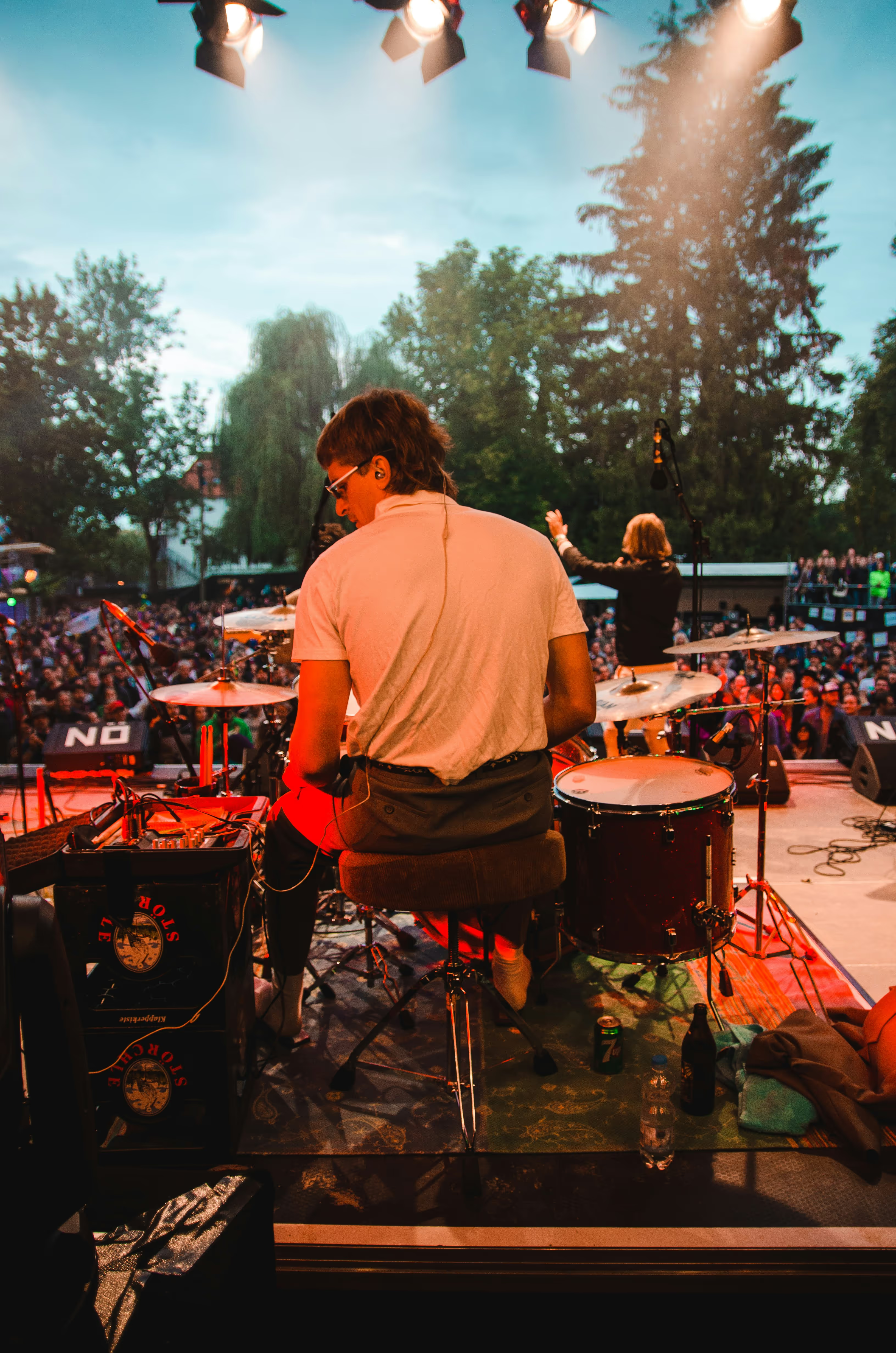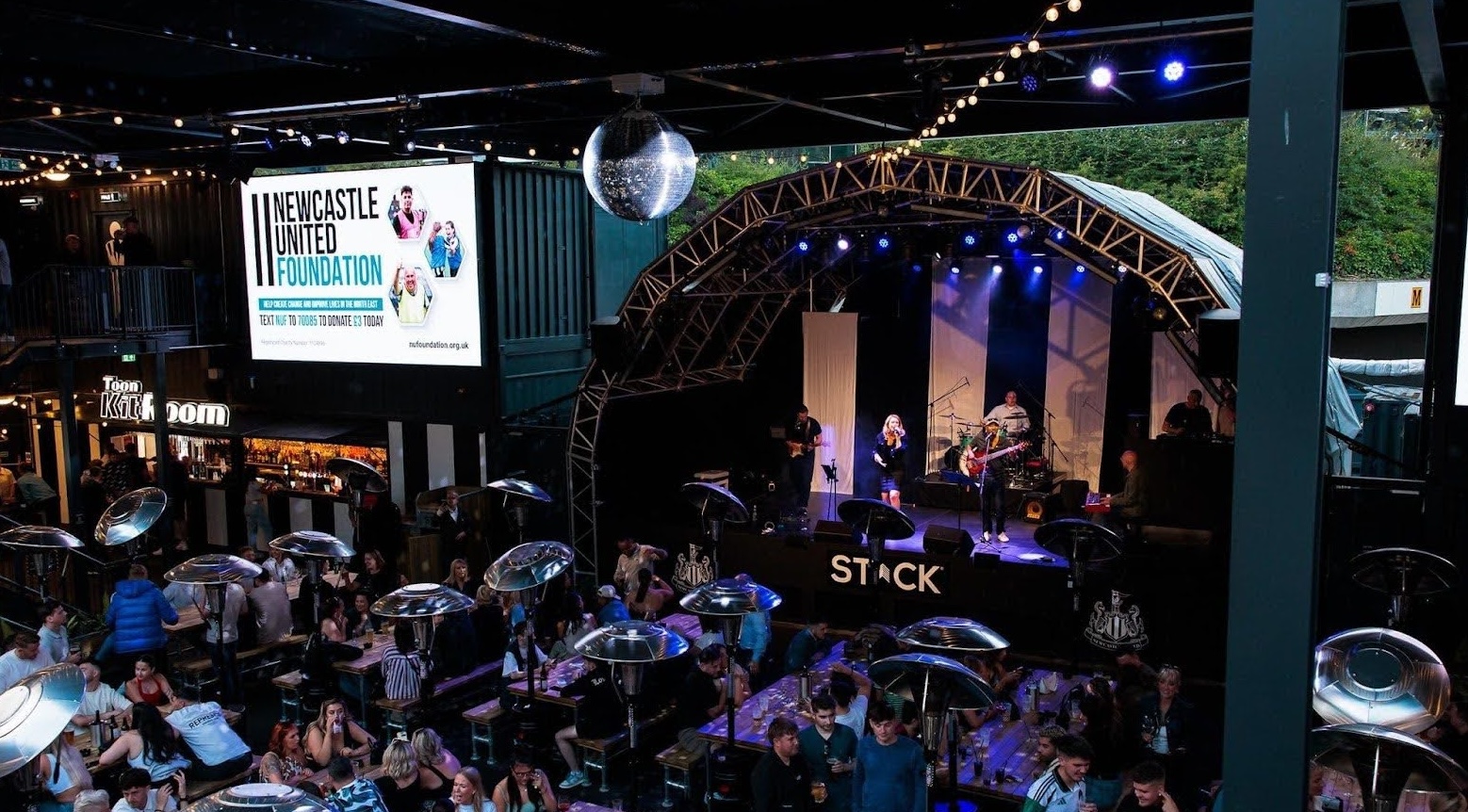
Tips for Musicians to Get Booked for Music Festivals
Getting booked on a music festival can be pivotal in a musician's career. With the festival season fully underway, many emerging artists will be watching on with a desire to be on the billing next year.
And whilst festivals are currently taking place, they require a significant amount of planning, which often takes place straight after the festival, with festival bookers thinking who would be the perfect fit for next summer's iteration.
Ultimately, performing at festivals is a shared dream amongst artists, but it is also a great way to engage a captive audience in your music and can open more doors in your career.
The further you look down on festival posters, it’s clear that it is a coveted place for the hottest upcoming talents ready to emerge as a major artist. However, with a limited number of spots available, the path to getting booked is highly competitive. Here are some top tips for those musicians who are ready to perform at a festival from key players in the industry.
Connecting with festival bookers
For emerging artists with a strong DIY attitude, The Unsigned Guide is an essential tool in the arsenal of new talent. The Unsigned Guide is a UK music industry directory, aimed at emerging, independent bands and artists, who are marking their 21st birthday this year in championing and supporting grassroots musicians. Their directory spans to 8,500 contacts within 50 areas of the UK music industry, meaning it’s the perfect way to get connected to festival bookers and increase chances of finding yourself on a poster.
GigPig spoke with Louise Dodgson, the editor for The Unsigned Guide, about the invaluable work the platform does for emerging artists to make connections in the industry, she said: “Since 2003 The Unsigned Guide directory has provided a wide range of contacts specifically aimed at the emerging sector, so it's a bit of a one-stop shop. We do the time-consuming research and compile the essential contacts (straddling 50 areas of the music business) in one place, so bands and artists can focus on creating music and playing gigs, and spend less time scouring Google. Every company listed in the Guide is open to hearing from emerging and grassroots acts.
“The Festivals section of our directory lists 150+ UK music festivals that accept submissions from unsigned and emerging artists to perform. You can search the listings by UK region or town/city if you're starting out and looking for local events, or you can search nationally for bigger scale festivals. There's also the facility to filter search results by application deadline month, to make sure you don't miss any festival application windows which are closing soon."
One company ensuring those artists find their place on the poster is Runway Artists, which was founded in 2020 against the backdrop of the COVID pandemic by booking agent Matt Hanner, who has previously garnered nearly a decade of experience with Coda Music Agency (now Wasserman) and ATC Live. The independent booking agency has built a roster of 120 musicians, including emerging and established talent such as Benjamin Francis Leftwich, A Certain Ratio and Jodie Nicholson.
Moving from a corporate background has ensured Matt has a holistic view of the operations in the company, where his role in Runway has adapted from the traditional booking agent. GigPig spoke with the founder to tap into his extensive knowledge for advice and tips to help emerging artists get booked on a festival.
Patience
“The biggest word we found ourselves using over the last few years is patience. It's very easy to see something that has blown up out of nowhere on TikTok and think that should be me, I should be coming out of nowhere, and why is my music not getting the same reaction?” Matt said.
“But for every one of those success stories, there are hundreds that have done the hard yards in some way, shape or form. So being patient will considerably help.”
Honing your craft
“Looking after your own business helps you to be at a festival and getting support slots. A lot of it is out of your hands, and you need to make sure you're giving yourself the best opportunity by just being as good as you can be with your songwriting, producing the best songs and being a great live artist. I suggest people spend most of their time on the things they can control, like working on their craft."
Networking and building relationships
“Building those relationships is when you start to get booked. Start to intentionally put yourselves in places where you're going to meet and become known to the sorts of people who want to write with you or tour with you. Someone might love your music, but a lot of the time, the artists they take to support are mainly through the strength of the relationship and how much they want to support someone else as an artist or as a friend.”
Cutting through the noise
With over 120,000 new songs uploaded daily on Spotify, the supply pipe for artists is bursting at the seams. Whilst cream does always rise to the top, it can still be incredibly difficult to sort the wheat from the chaff in such a saturated market.
It has never become so easy for artists to produce music. It isn’t as expensive as it once was, and artists have become self-dependent, shown initiative and resilience, and have become multi-faceted, as they have to record, produce, publish and market all their work, something that has now become second nature to most.
Louise believes that this is the greatest challenge emerging artists face in the industry, she said: “Competition is very fierce and slots for grassroots artists are limited. There are a vast amount of unsigned and emerging acts in the UK and beyond vying to play at festivals, and unfortunately with UK music festivals currently in decline this equates to fewer opportunities to go around.”
But how do emerging artists cut through the noise with so many recording artists around them?
“You have got to be authentic and true to yourselves. Don't get into whatever trend is going on at that time,” Matt added.“The big strain for a lot of people is they don't enjoy creating content for social media, so you've got to find ways that work for you. Ultimately, social media is a free promotion tool, which everyone should be using, but not with the expectation that it will make or break you. So find a way that you're comfortable using it. If you don’t go into it with that attitude, the vast majority of us would be disappointed.
“We've talked to artists on our roster who will go on tour or be in the studio, and they will bank a load of content, which they can share over time. It means artists aren’t waking up every day needing to get some content. It is finding out what is natural for you and being authentic with the content you create, as it will take time away from more important things," Matt concluded.
One viable way for artists to cut through the noise whilst earning a viable living wage as an artist is by performing within the seed sector, which refers to the step before grassroots venues, where artists perform in bars, restaurants, pubs and clubs. By actively gigging within this sector, artists can earn, on average, £2,079 per month or £24,948 annually, as per GigPig’s Live Music Index. Whilst financially it is an alluring avenue to enter, regularly gigging can help musicians hone their craft, gain their stripes and build a community around their music, which encompasses all of the advice given by Matt.
Artists who are using the GigPig platform can now use the code 'GIGPIG30' for 30% off the annual subscription fee to The Unsigned Guide, where not only can artists benefit from their directory, but also capitalise on their monthly Spotlight championing exciting artists and their Deals and Discounts allowing musicians to save money on essential services. This will, in turn, assist emerging musicians to achieve that coveted spot on a festival poster.
Related news


.jpg)
.jpg)

.svg)

